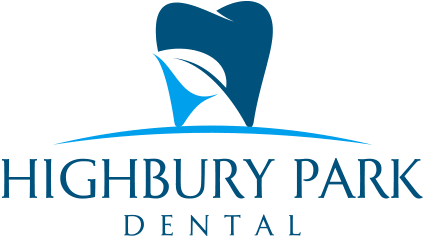How to Tell if Sedation Dentistry is Right for You
Some oral health treatments are easier to perform or more comfortable when the patient is sedated. Thus, many patients prefer sedation dentistry.
As with any dental service, sedation dentistry is associated with side effects that any prospective patient should be aware of. Learn more about what to expect when you’re going under, so you’ll feel more prepared before your dental procedure.
Read More: EASING YOUR DENTAL ANXIETY WITH SEDATION DENTISTRY
What is sedation dentistry?
Most patients are familiar with the use of “laughing gas” in medical settings. Laughing gas is one iteration of sedation that dentists use – but it isn’t the only one. For ease of procedure, dentists safely administer a sedative to help you relax during oral surgery or any uncomfortable dental procedures. The different types of sedation include laughing gas (nitrous oxide), oral sedation in the form of a pill, or intravenous (IV) sedation. Almost all dentists are able to administer nitrous oxide or prescribe oral sedation pills, but they must be properly certified to offer IV sedation.
Read More: HOW INTRAVENOUS SEDATION DENTISTRY WORKS AND WHY IT CAN HELP YOU
Benefits of sedation dentistry
The benefits of sedation dentistry are simple: if you are a patient who suffers from dental phobia or anxiety during dental appointments, sedation offers an alternative to staying awake. Sedatives are also highly recommended when it comes to painful procedures that are uncomfortable to endure – these may include having braces put in, or getting a tooth pulled. Ultimately, sedation dentistry removes a roadblock to dental care, helping patients achieve better oral health and more beautiful smiles without fear or anxiety getting in the way.
Read More: DEALING WITH DENTAL ANXIETY
Read More: DEALING WITH DENTAL ANXIETY IN CHILDREN
Possible Side Effects
Drowsiness
Drowsiness after an operation is an extremely common side effect from sedation, and many patients find that this effect lasts long, even after the procedure ends. Certain gases make you sleepy or alter your perception, so it’s usually recommended to arrange for someone to take you home after a procedure. Be sure to get all the rest you can to regain strength and energy after sedation.
Feelings of heaviness or sluggishness
Sedation dentistry relaxes all of your muscles to the point of a trance-like state, so you may feel heavy or sluggish afterwards. This is very normal, and it is highly unadvised for anybody to drive themselves home or operate any type of heavy or complex machinery after undergoing sedation. In fact, doing so while sedated is illegal. This is partially why a third party is required to bring you home.
Loss of memory of what happened during the procedure
Even mild forms of sedation, such as nitrous oxide, can put a patient into a “twilight state”. This means that the patient isn’t conscious of what they’re saying and will very likely not remember anything when they return to normalcy. Don’t be surprised if you don’t remember a thing that happened during the procedure, and try not to engage in activities requiring heavy concentration or consequential decision making.
Slow reflexes
As the whole body slows down in a sedated state, it is expected that upon waking up, it will take time for the rest of your body to catch up to its “normal” state. Give it the remainder of the day for your reflexes to in turn catch up as well. Stay close to somebody after your procedure. If you live alone and have no other options, make sure that you have minimal commitments or activities that could compromise your safety at home. Avoid activities that require strong reflexes, like cooking.
Low blood pressure
Sedation can cause a decrease in cerebral metabolism, blood flow, and intracranial pressure. This may cause your blood pressure to slow down, which can also account for the dizziness, drowsiness and headache side effects.
Headache
You may experience a headache after receiving sedation. This is likely caused by contractions in the facial and scalp muscles that occur in response to sedation, but they die down fairly soon after recovery begins. Do not be alarmed if you have a headache, but talk to your doctor if headaches became frequent and/or painful.
Feeling sick
It’s quite normal to feel nauseous after undergoing sedation dentistry. Between the cloudiness of sedation and the process of readapting to your senses after waking up, your body will need time to recover after going through changes. Try to relax and stay away from heavy food and all alcoholic drinks following your procedure.
Read More: INTRAVENOUS SEDATION DENTISTRY FAQS
While all of the above side effects are completely natural and to be expected after sedation dentistry, be sure to consult with your dental clinic before deciding upon any form of sedation for your procedure. Communicate any health conditions you have, or health-related issues that may be relevant. Your dentist will likely ask this during a consultation, before they determine if sedation is an appropriate option for you.

